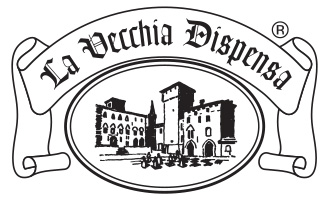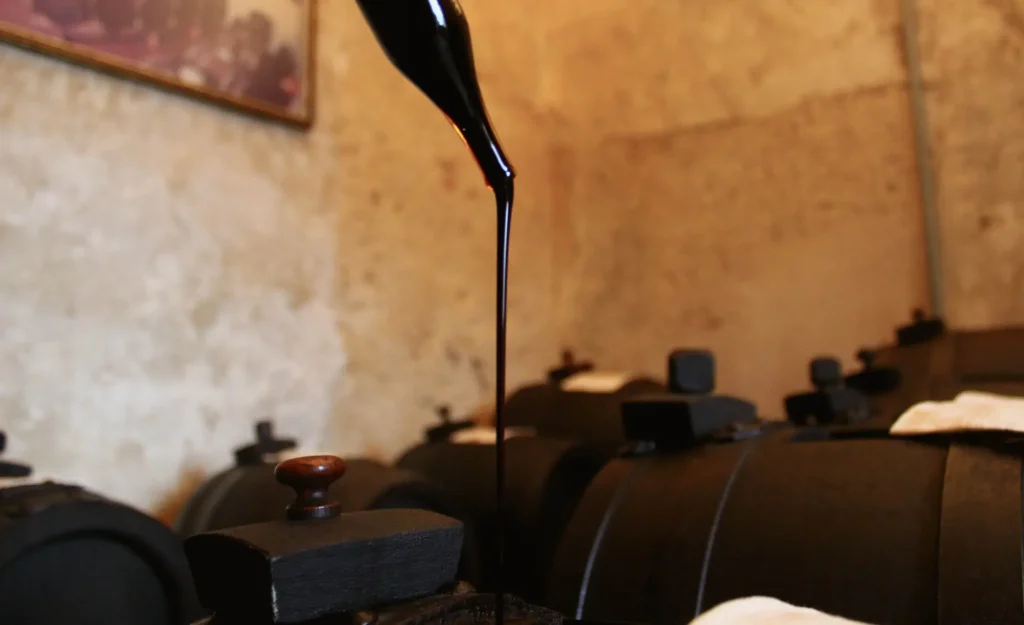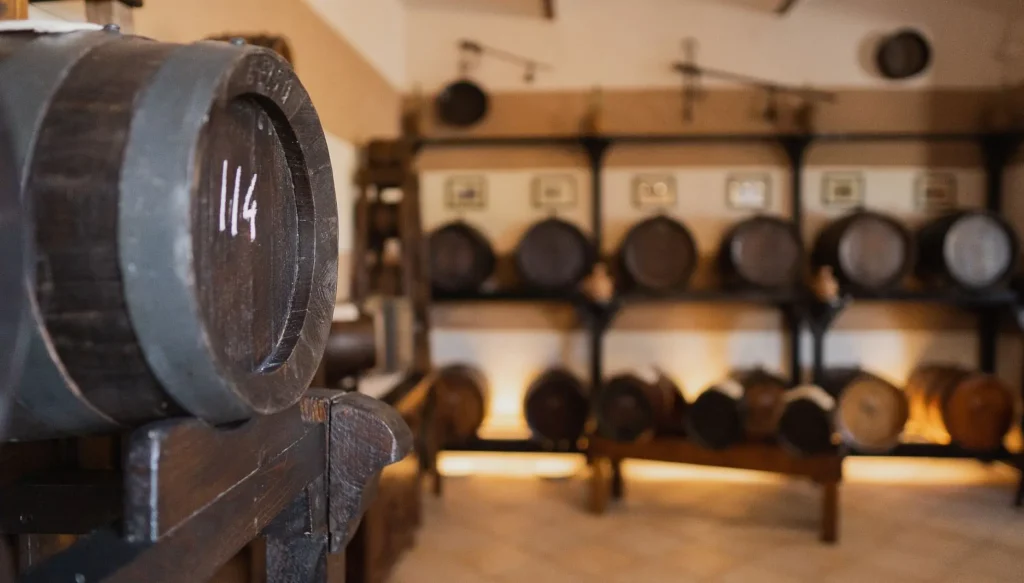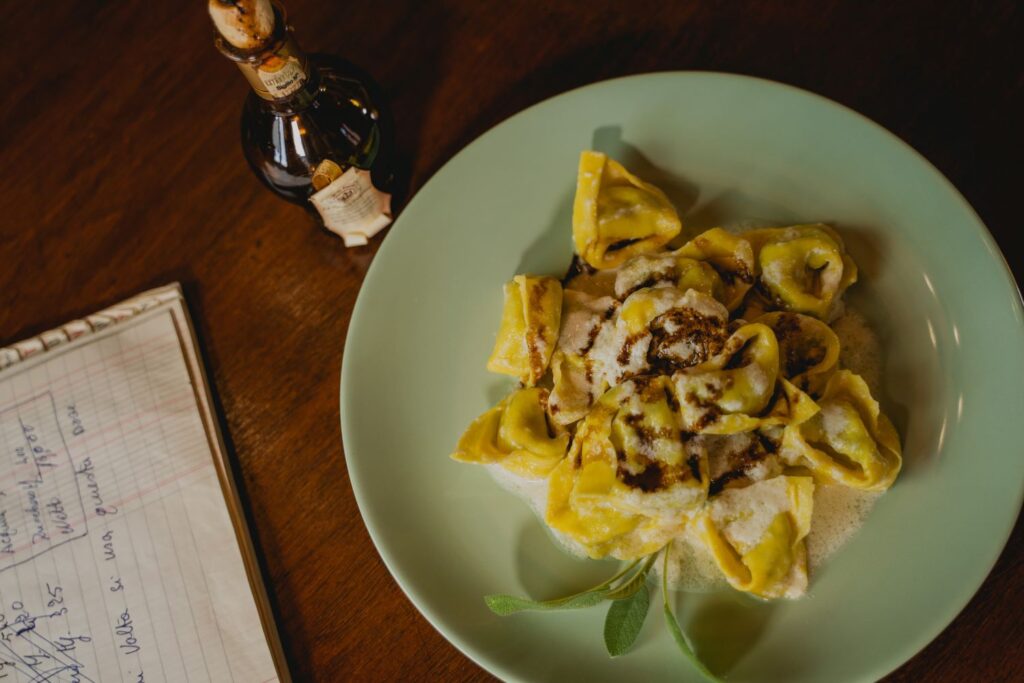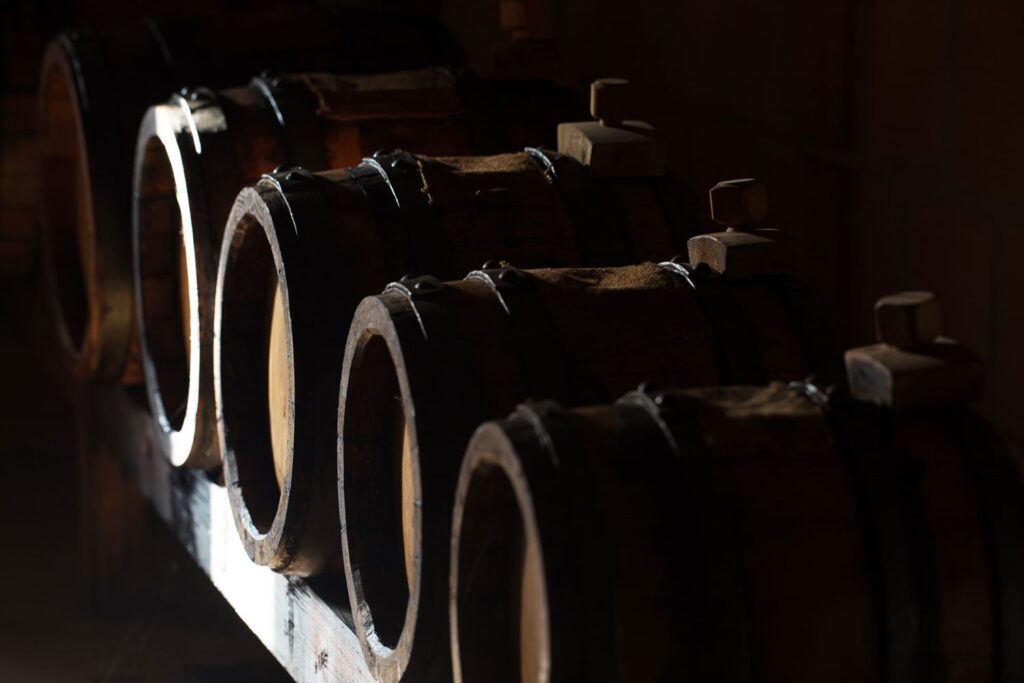Balsamic Vinegar of Modena is one of the deeply rooted symbols of the Emilian culture and its production is connected to a variety of peasant rituals, that have handed down over the centuries. It is not just a food ingredient used as a condiment, but a genuine cultural treasure, with a strong connection to the land and the cyclical nature of agricultural life. Farmers have developed practices and rituals to honour the different phases in the production of Balsamic Vinegar of Modena. Talking about this, especially during the Autumn when it all begins, is the best way to honour a history that serves both as a lesson and a guideline for a better future.
The beginning of the Grape Harvest: time of celebration and reflection
The production of Balsamic Vinegar starts with the grape harvest, a key moment in the agricultural calendar of the Emilia region. During the autumn season, the Trebbiano grapes, widely used variety for Vinegar production, reach maturity. The grape harvest is a traditional time of both celebration and reflection for peasant families, as they associate to this moment the ending of a natural cycle and the beginning of a new chapter. Originally, it used to be accompanied by auspicious rituals to ensure good grape fermentation and thus high quality Vinegar. Families would arrange large community banquets in the fields, and the grape harvest turned into a precious time for sharing and strengthening the sense of belonging.

The ancient art of must cooking
After harvesting, the grapes are first pressed and then the must is slowly cooked to obtain the liquid base for Balsamic Vinegar. This production phase was also traditionally complemented by another very important ritual: the ‘first cooking’. The must, in fact, used to be cooked in large open cauldrons, in a process that required hours and constant supervision by the head of the family.
The time spent around the cauldrons turned into an opportunity to relate family tales and anecdotes about the land and its production in past years. The constant attendance of the oldest family members was considered crucial as they were seen as the historical remembrance of the site and reputed holders of ancient knowledge.
The barrel filling, symbol of continuity
After the cooking process, the cooked grape must was transferred to the barrels, where the slow process of fermentation and ageing in wood began, which gave rise to Balsamic Vinegar of Modena. Now another important ritual comes in: the filling of the barrels. This moment was considered a very important and symbolic step for peasant families. Each barrel represented a new offspring, a passing of the torch between the old and the new.
Barrels, often passed on from generation to generation, were considered a treasured part of family wealth. They were preserved with great care, and their filling symbolised the continuity of family and peasant tradition. The oldest barrels were often kept for special events, such as weddings or births, further connecting the production of balsamic vinegar to the most important family moments.
The tasting Ritual
Tasting the aged Vinegar, during the halfway process, was considered a true ritual. Often assisted by older family members, the head of the family had the task of tasting the quality of the Vinegar during the ageing. This moment of checking was much more than a simple technical evaluation: the tasting represented a dialogue between the past and the future, between the generations that had preserved the Balsamic Vinegar before and the ones that would have appreciated it in the future. Each tasting was carefully and respectfully carried out, symbolising confidence in the natural process and in the knowledge handed down.

Balsamic in the Pantry as a symbol of prosperity and protection
In peasant beliefs, balsamic vinegar also had a wider symbolic meaning, associated with protection and prosperity. In many houses, in fact, a vinegar bottle was kept beside the pantry as a symbol of prosperity. It was also believed that, just as the ageing process of balsamic vinegar required time and patience, the same attitude would guarantee the family prosperity and protection during the winter months.
The rituals related to the production of balsamic vinegar, now as then, reflect a deep connection with the land, time and family. Through these, peasant generations not only preserved the quality of vinegar, but also passed on values of patience, dedication and respect for natural cycles. Today, many of these traditions live on in Modena’s vinegar houses, reminding us how balsamic vinegar is a cultural symbol deeply rooted in the history and heart of Emilia-Romagna.










